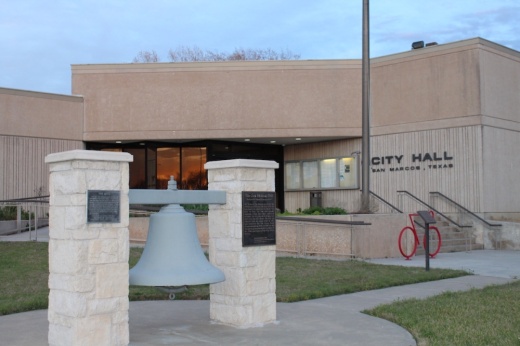This comes after months of negotiations between the city and police association along with a successful citizens petition effort to revoke a previously approved meet and confer contract approved in September. That contract would have been in place through September 2025.
The context
Three months of negotiations between the city of San Marcos and the San Marcos Police Officers' Association brought forth a new meet and confer agreement after the former contract was repealed in February, following a petition effort led by local activist group Mano Amiga and a Feb. 7 City Council vote.
In June 2020, then-San Marcos police Sgt. Ryan Hartman was off duty when he allegedly sped through a stop sign and collided with another vehicle in Lockhart that contained two passengers; Pam Watts sustained traumatic injuries but survived, while her life partner, Jennifer Miller, died as a result of the crash.
Hartman was ultimately charged with a Class C misdemeanor traffic violation, according to a statement from the city of San Marcos.
Watts partnered with Mano Amiga to repeal the existing agreement through a petition effort and try to add the Five Hartman Reforms increase police oversight and transparency within the police department. He was removed from the force ultimately through arbitration proceedings related to another unrelated offense, according to the city.
The reforms
These are the five reforms that Watts and Mano Amiga demanded to be added to the new agreement:
- End the 180-day rule: This rule means a police officer cannot be disciplined or reprimanded for an incident 180 days after it occurs.
- End delay of interviews for misconduct: Repeal conditions in which officers are allotted 48 hours to prepare answers in interviews; officers also have the ability to review video footage, photos and other materials prior to giving an official statement.
- Public transparency for personnel files: Documented misconduct should be available to the community.
- End third-party arbitration
- End vacation forfeiture as a substitute to suspension
In the new contract, among the new rules is a new performance review system that was adopted for use when considering employees for promotion, including letters of reprimand and suspensions as factors in the process, which were absent prior to the new contract.
The role of an arbitrator when considering disciplinary appeals will be limited compared to what is provided for in civil service law.
Instead of ending the 180-day rule, the negotiated outcome for this reform essentially doubles the time frame in which an officer can be disciplined for an incident.
The takeaway
Council members discussed both the progress made in the new agreement and also grievances with the way the whole process played out.
“I think this is a fair agreement. I really do,” Council Member Mark Gleason said. “And I think both sides got some things they wanted and some things that they didn't. And I do hope that the criminal justice reform movement that has been pushing a lot of this stuff realizes how important some of the things that you did get [are] that you probably wouldn't have gotten otherwise if it goes back to civil service; I know there's been some talk of that.”
Gleason was referring to the suggestion that Mano Amiga has stated it will push to repeal the contract again, this time to revoke the meet and confer proceedings and place police officers under the same provisions in state law that other city staff—with the exception of firefighters—are hired under.
“I will say that under the Chapter 142 contract it actually allows you to supersede provisions of state law. So it is against the law until they build it into the contract to supersede so all the Hartman Reforms can and should be adopted,” said Eric Martinez, the safety policy director for Mano Amiga during the public comment period at the beginning of the council meeting. “Any excuse is purely misleading and misguidance.”
Garza outlined several reasons for choosing to vote against the contract, including the way the process transpired and contradictory claims, she said.
“We all love our community, and we're willing to get our hands dirty and get uncomfortable if it means showing up for each other. So that's why I fundamentally cannot support the renegotiated contract. Instead of capitalizing on this unique strength only found in San Marcos, we chose to have behind-closed-doors conversations regarding the reforms,” Garza said. “Instead of having a dialogue to ensure our neighbors, all our neighbors on either side, had a fuller understanding of the contract and the process to learn from each other. ... All of this could have been avoided with open dialogue.”





